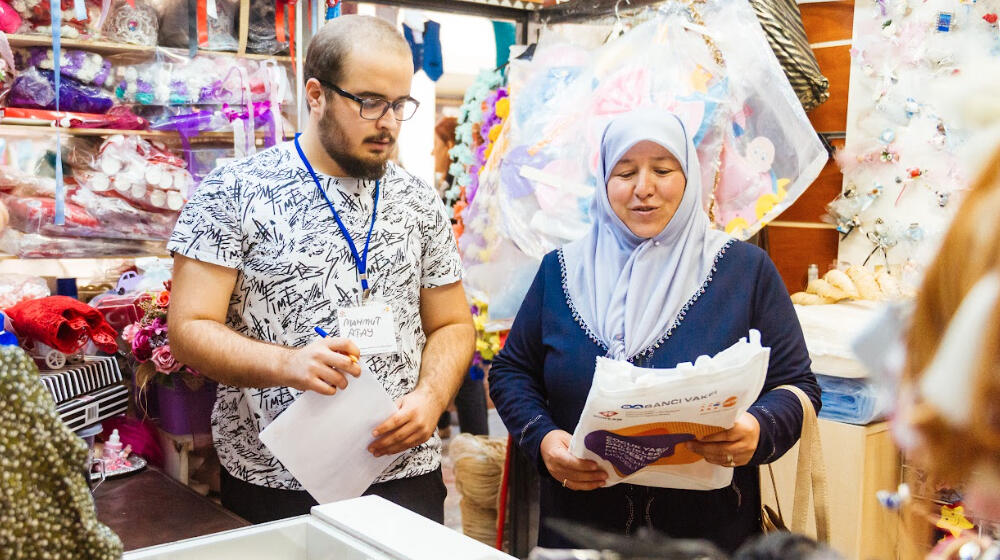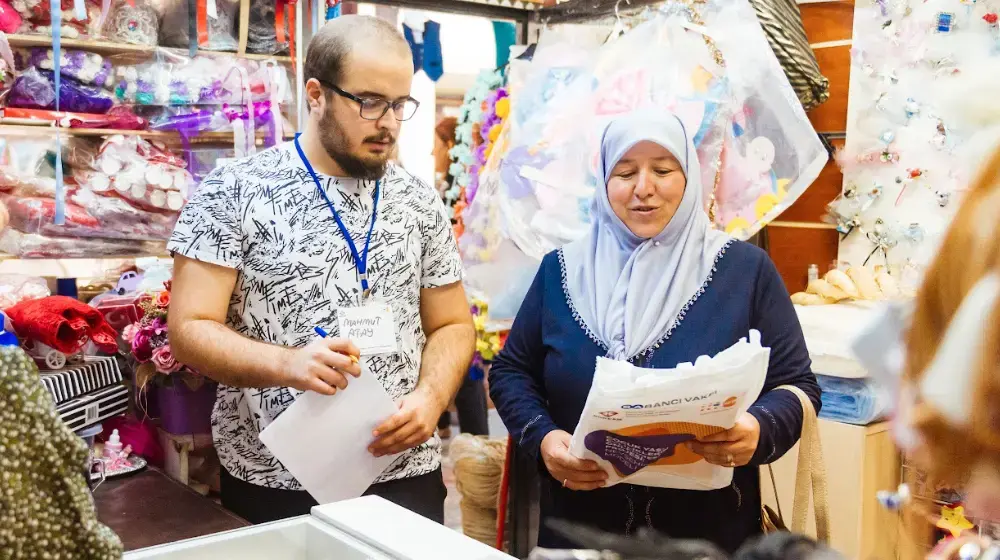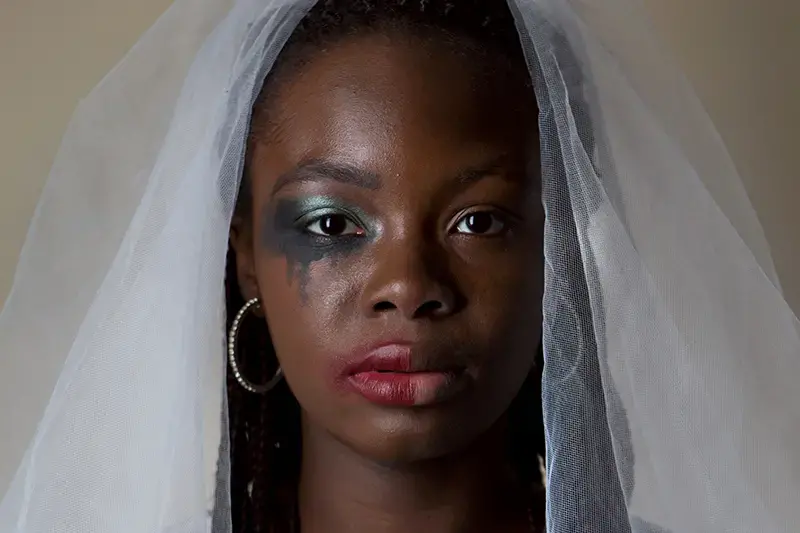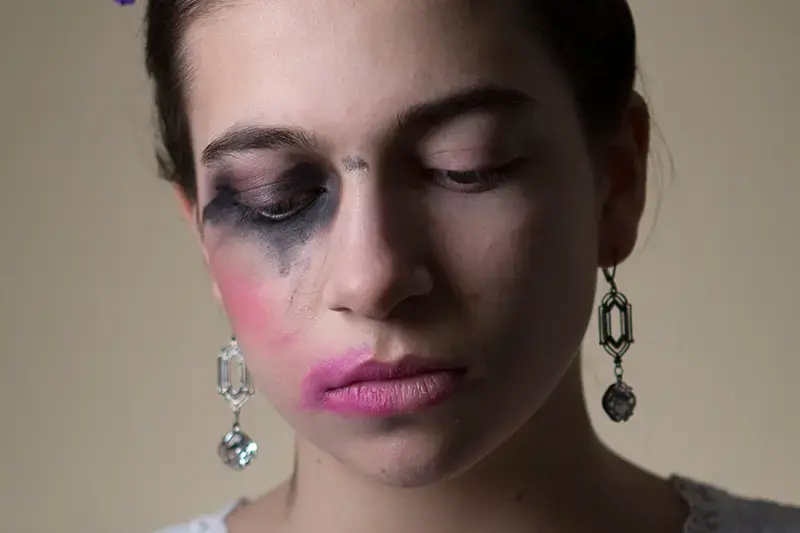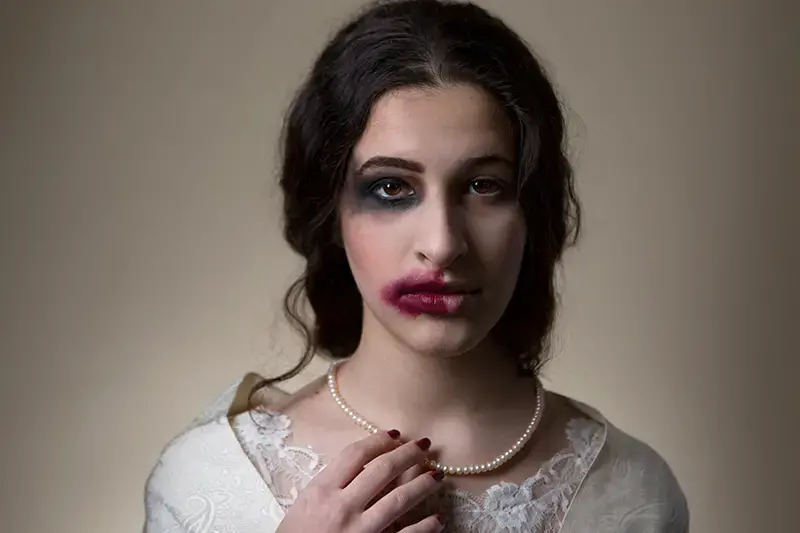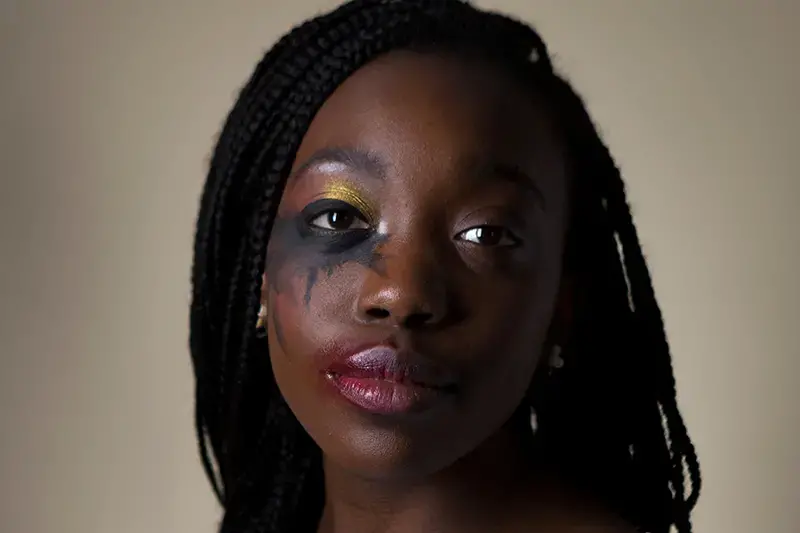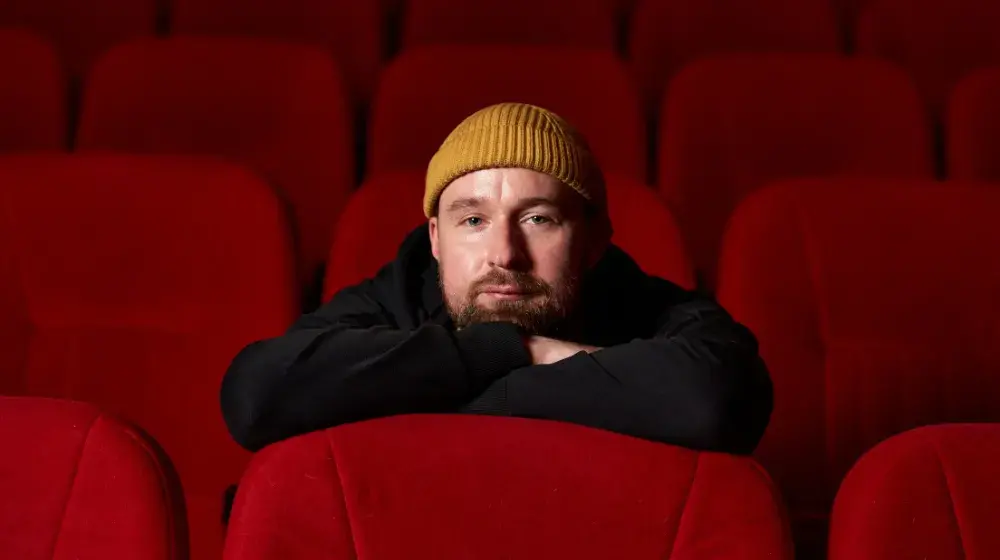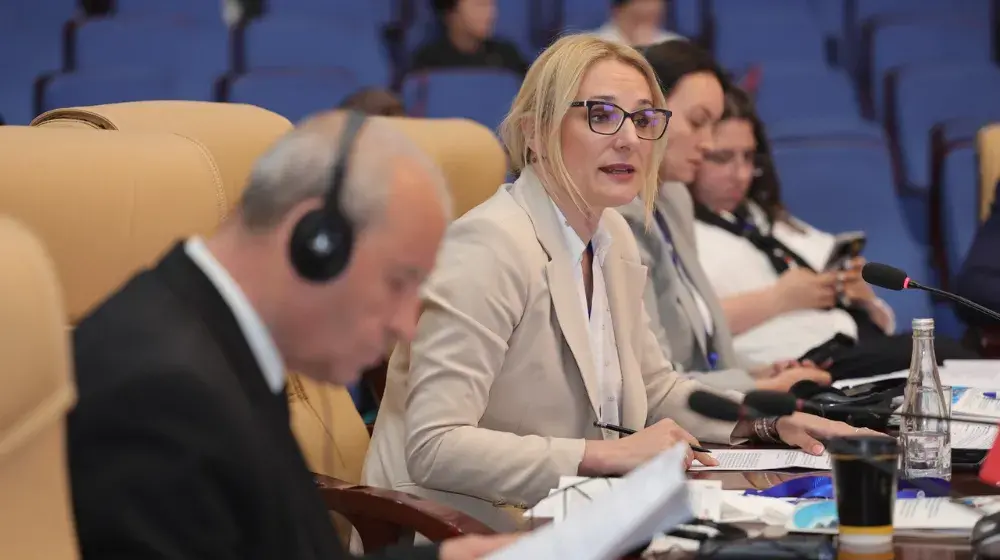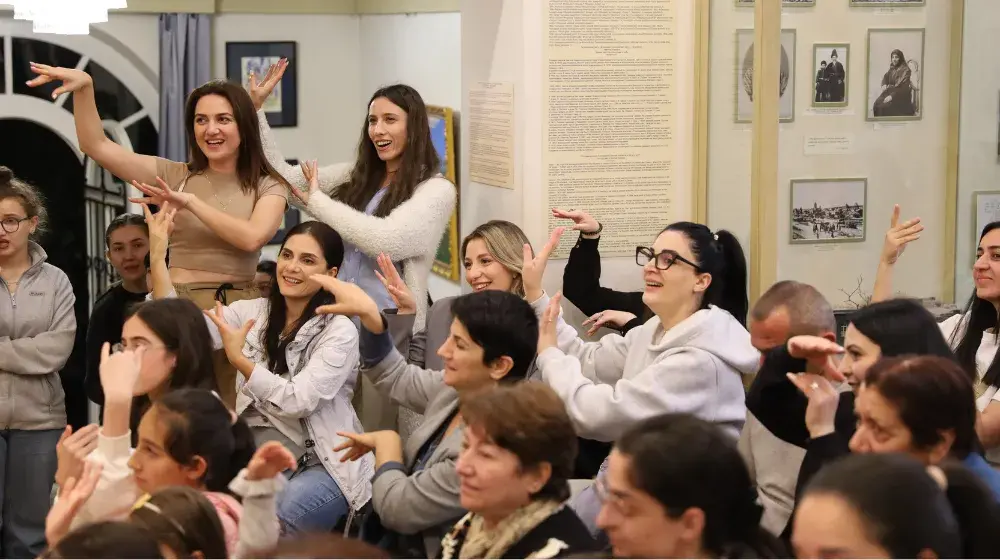Child marriage is still common in parts of Türkiye, especially among poorer people and in rural areas.
With UNFPA support, health mediators, some married as children themselves, go from door to door in their communities to speak with parents, officials and tradespeople about the dangers of early marriage and what they can do to stop the harmful practice.
“I was just like a sheep being sent to slaughter,” said Nuray, from Nevşehir in central Türkiye. “You have to go whether you want to or not.”
Nuray was married off by her parents to a much older man when she was only 15 years old. She gave birth soon after, after a difficult delivery that the baby almost didn’t survive.
“I resented my mother and father because they prevented me from getting an education,” she said.
Child marriage is still practiced in Türkiye, especially among poorer families and in rural areas. According to a 2020 UNFPA report, one in five women in Türkiye were married before they were 18 years old and one in three of those became a mother as an adolescent. The legal age of marriage in Türkiye is 18. But children can be married at the age of 17 with the consent of their parents or legal guardians, and exceptionally even at age 16, with permission from a court of law. The vast majority of child marriages, however, take place outside the law, through informal religious ceremonies and without registration by the state authorities.
The effects of early marriage can be devastating. Girls are often forced to drop out of school after they get married so that they can take care of the household. Many become pregnant soon after their wedding, at an age when the risks of complications in pregnancy and childbirth are much higher than for adult women. Girls who marry young also often end up in violent relationships. Countless teenage girls have been caught up in this way in a cycle of abuse, exclusion and poverty that often continues through generations.
“I was beaten by my mother-in-law and exposed to violence from my husband all the time,” said Hülya, also from Nevşehir, who was pressured by her family into getting married when she was a teenager. “My life was full of violence and my marriage was not good.”
Today, Hülya and Nuray, both in their forties, are working to make sure girls in their communities are spared what they had to go through and can decide freely when to get married, and with whom. The two women are among a group of 48 trained health mediators in Nevşehir who go from door to door and speak with families about the dangers of child marriage.
“One day we heard that a girl was due to be married,” recalled Nuray. “We immediately contacted her mother and eventually convinced her not to go through with it. Once the door opens slightly, the rest is easy. Even those who do not want to speak at first suddenly start to tell their stories. We’ve changed the minds of a lot of people in Nevşehir.”
The Prevention of Child Marriage Project programme was launched with UNFPA support and funding from the Sabanci Foundation in Nevşehir in 2019 and has since been expanded to other provinces with high numbers of child marriages, including Van, Bitlis and Muş in eastern Türkiye. It has reached over 4,000 households so far in some of the most remote parts of the country.
Village mayors, service providers and even tradespeople have joined the effort to give more choice and opportunities to today’s generation of girls in Türkiye.
Çetin Karaduman works as a tailor in Van and is the head of a local craftspeople association. After UNFPA visited him to explain the risks of child marriage and how making wedding dresses for young girls encourages the harmful practice, he changed the way he worked.
“We neither sell wedding dresses to girls nor make groom suits for boys,” said Mr. Karaduman. “We have a lot of members in the Chamber of Commerce who sell wedding dresses. We told this to all our members. They don't do it anymore either.”
It did not stop there. Bakers vowed not to make wedding cakes, printers not to print invitations, and hairdressers not to style hair when parents were marrying off their underage daughters.
For Helin, from Karlıyamaç village in Van province, it was an uncle who saved her from the almost certain fate of early marriage. At age 18, she was expected to get married like other girls in her village. But Helin’s life changed when her uncle, the head of the village, introduced her to the Prevention of Child Marriage Project. Although Helin was still in education, she started working as a health mediator for the project.
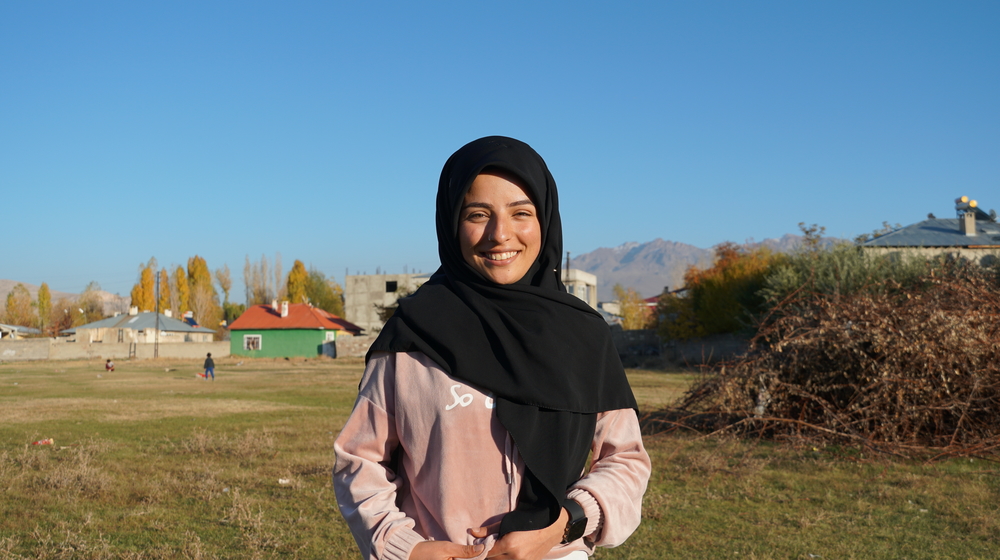
“A lot of girls who get married at an early age don’t go to school and they don’t receive enough information about their health,” said Helin. “I know what it is like from my own experience. I didn’t know much about the harm of early marriage.”
Now the villagers come to Helin and ask what they can do when they hear of a child marriage being planned: “In this way, we recently helped a very young girl avoid being married by her parents.”
Not only does Helin help improve the health and life expectations of girls in Karlıyamaç, but she is also a positive role model for her peers and the younger girls in the village.
“When I leave the houses I visit, the ideas of the girls I meet there change,” she said. “After seeing me, they say, ‘Helin can do this. If I study too, I can be like her.’ When they ask, ‘How can I achieve this too?’ I tell them to believe in themselves. I will fight against early marriage with all my strength.”

